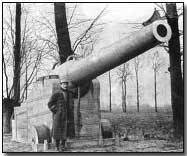Introduction to Poetry ~ War Poetry
 Poetry is often mistaken as lovey-dovey flowery words. Not at all. For at its best, poetry expresses experiences or ideas with tightly muscular or emotionally swift words. It has been known to cut, shock, spin, or stun readers into new thoughts.
Poetry is often mistaken as lovey-dovey flowery words. Not at all. For at its best, poetry expresses experiences or ideas with tightly muscular or emotionally swift words. It has been known to cut, shock, spin, or stun readers into new thoughts.As we begin studying poetry, there is no better place to start these days than with war poetry. With America acting more and more like an empire, overreacting and overreaching militarily in the world, especially in Iraq, and with a U.S. president deadset on violence as his hope for the world, American poets and international poets continue responding (see Poets Against the War).
But war was not all bad for poets. Before the twentieth century, war poetry celebrated the triumphs and glories of warriors, even the violence as in Homer's Illiad.
Since the late nineteenth century, war became more realistic and less honorable. For instance, poets like American Stephen Crane wrote ironically and cynically about war in "War is Kind."
As poets wrote about World War I, many of them were firsthand witnesses of mustard gas massacres (see John Singer Sargent's painting called Gassed and read Wilfred Owen's "Dulce Et Decorum Est"). The English translation of the Latin phrase ("how sweet it is to die for one's country") emphasizes the poet's dark irony about war.
During World War II, millions died as a result of weapons of mass destruction, and many soldiers died in the odd machinery of war--as in the ball turret of a bomber plane (read "The Death of the Ball Turret Gunner"). Not surprisingly, military weaponry is made first for killing, not protecting. Just look at the case of Private First Class John D. Hart who, before being killed because of a lack of bulletproof shielding or even metal doors on Humvees, talked with his father on the phone about the Humvee's lack of armor. Brian Hart, the soldier's father, took action with the help of Senator Edward M. Kennedy, Democrat of Massachusetts, to "up-armor" Humvees.
The U.S. involvement in Vietnam produced more poetry, anti-war music, and a huge counter culture movement. Then came military operations in the Persian Gulf, first with Operation Desert Storm and then with the Iraq War. Of the wars of the last 50 years, perhaps no more anger has been expressed among poets than about the current war (see "Orgres" and other poems on this website). Now, with Bush rejecting the announcement by an international group of physicians and researchers that we have killed close to 650,000 Iraqi civilians since 2003, we will hear from many other poets, I'm sure.
So why does war poetry produce so much passion, and why is it so anti-war in the twentieth and twenty-first centuries? Obviously, the case of Private First Class John D. Hart and the case of 650,000 Iraqi civilians dead are enough to create such animosity towards war. But what can poets accomplish?


8 Comments:
POETRY CAN EXPRESS FEELING AND GIVE INSIGHT ON THE WAR AND BE ABLE TO INBRACE AND FEEL WHAT THE POET IS SAYING TO US THROUGH THEIR POTERY. IT WILL GIVE US AN OPENING DOOR LETTING US SEE THINGS WE NEVER REALIZE WERE GOING ON... AB
By Anonymous, at October 20, 2006
Anonymous, at October 20, 2006
Writing or poetry shaped the way people viewed war throughout history. In modern times there are television channels that will take you right to the war, so that people at home can see what is going on. Before these stations were around, all that people had were writings of the war. The way a poet describes a situation could influence the opinion of war back home.
Matt H
By Anonymous, at October 20, 2006
Anonymous, at October 20, 2006
If I were to pick the most powerful form of literature, poetry would be it. Good poetry is always filled with intensity, and that is why it reaches out to so many people.
Writing anti-war poetry can really help the anti-war cause. Poetry is something that translates well to many people, and is often more readable then a lengthy newspaper article. Another thing is that poetry evokes such emotion from it's readers, that it often will drive someone towards that cause.
By Tinamari, at October 20, 2006
Tinamari, at October 20, 2006
I think poetry produces so much passion because there are those of the war and families of those of the war that are proud to say and know that they or their loved one fought for our country or fought and died for our country. The past several years people are turning anti-war because things are getting out of hand, too many dying, and what exactly is our purpose there now anyway. i think it is all chaotic.! We need a new plan! Poets can accomplish good reviews and alot of curiosity on other's parts wanting to view their work because they might want to see how other's express themselves through their work. Jillian
By Anonymous, at October 20, 2006
Anonymous, at October 20, 2006
There really is so much more protest and other such feelings about war in the twentieth and twenty-first centuries simply because information about it is so readily available.
I mean, with television and radio and politics always talking about war, it’s difficult for anyone to escape it. So, more people will have opinions of war because more people have access to what is happening.
As to why anti-war poetry is so prevalent, I'm not sure. Maybe it's because we've been taught from early age that war is bad and peace is good. Or maybe it’s because the war is a pointless catastrophe that we never needed to be involved with in the first place though it's much too late to pull out now. Not to say that -I- have any opinions about it or anything.
When people can form their own opinions, they aren't easily swayed from them. Passion evolves out of that. And, when a poet writes, they are writing what they know they feel and how they think. There may be people who aren't yet sure who or what to believe in the situation of today's war due to conflicting news reports and the nagging feeling that the government is always lying (or better yet, not revealing the whole truth). Perhaps the poetry, when read, can help bolster stronger support for the side of the writer by planting a seed of thought into a reader's head that in turn causes the reader to develop their own opinions.
By Unknown, at October 20, 2006
Unknown, at October 20, 2006
Ryan Darling Wrote,
Anti-war poetry and music are needed now more than they ever have been. America’s war on “terror” has lead to the deaths of thousands upon thousands of lives. With over 650,000 Iraqi civilians dead since the begging of this pointless war (that our tax dollars are paying for), we’re becoming the terrorists. Poets have a way of showing the horrors of wars through their cryptic writings. Their poetry can speak to the masses and help change things. “The pen is mightier than the sword” style of thinking is what keeps us moving and hoping for a new tomorrow. The politicians can stand proud on there podiums and claim how we’re fighting and dying for a reason, while the poet can only write what he hopes and wishes for the world to become. Poets like Bob Dylan wrote songs like “With God on Our Side” which talks about how every war America fights, we always believe that God is on our side. “ In many dark hour, I’ve been thinking about this. That Jesus Christ was betrayed by a kiss, now I can’t think for you, you’ll have to decided whether Judas Ascariot had God on his side.” And end the song saying if that God is on our side, then he’ll stop the next war. This song was about the Vietnam war. Poet Conor Oberst wrote a song called “When the President Talks to God”, which proposes questions like “When the president talks to God, I wonder which one plays the better cop. We should find some jobs the ghettos broke, no they’re lazy George I saw we don’t, just give em’ more liquor store and dirty coke. That’s what God recommends.” These are issues that need to be addressed, and music and poetry are the only way the little man can speak out against apparent injustice.
-Ryan Darling
By Anonymous, at October 20, 2006
Anonymous, at October 20, 2006
War poetry can come from a number of soucres. Maybe a person loves there coutry but is unable to fight for that counry that they love. Maybe they would write a poem as a venting of frustraion in not being able to help their fellow country men. Or another example could be a loved one fighting on a destant battlefeild these poems could be use as a personal memo and could be used to show their emotion to their loved ones back home. Anti war poets can accomplish many things they are just useing the talents that best express themselves with. An artist could very well do the same with an abstract peice that depicts the horros of war. But the loss of nearly 650,000 is compunded by the fact that what is it for, I mean are we in a desperate struggle with a greater military force than our own no we are merly there to become a nussance. And if anybody else reads this I am not questioning anything about any soilders and I respect them for what they are doing but seriously what is the point in going to a country where the majority wants to kill you and all you are doing is occupying a nation who is still trying to void civil war all the while the situation is becoming worse because the Cheif will refuse to aknowledge the fact that he made a good move to begin with but doesnt know how to quit without makeing it look like our country is simply giving up which would only boost the moral of any group that seeks to do harm to the free world the whole time you go from day to day avoiding death and with no ensured date to leave you are stuck wondering why? It is feelings like this that cuae such strong emotions in war poets.
Thad Myers
By Anonymous, at October 20, 2006
Anonymous, at October 20, 2006
War poetry creates passion by striking the hearts of people by the strong emotions that are usually expressed, especially if one can relate to the poet. The only thing I think poets can accomplish is getting their thoughts and opinions out in the world to people who might not have a good understanding of the personal issues of the subject
MP
By Anonymous, at October 20, 2006
Anonymous, at October 20, 2006
Post a Comment
<< Home